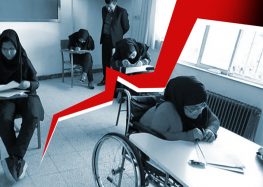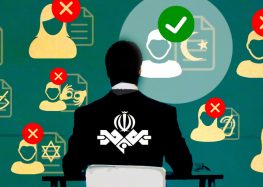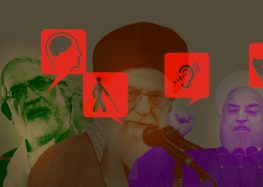People With Albinism Struggle to Access Crucial Treatment and Support in Iran
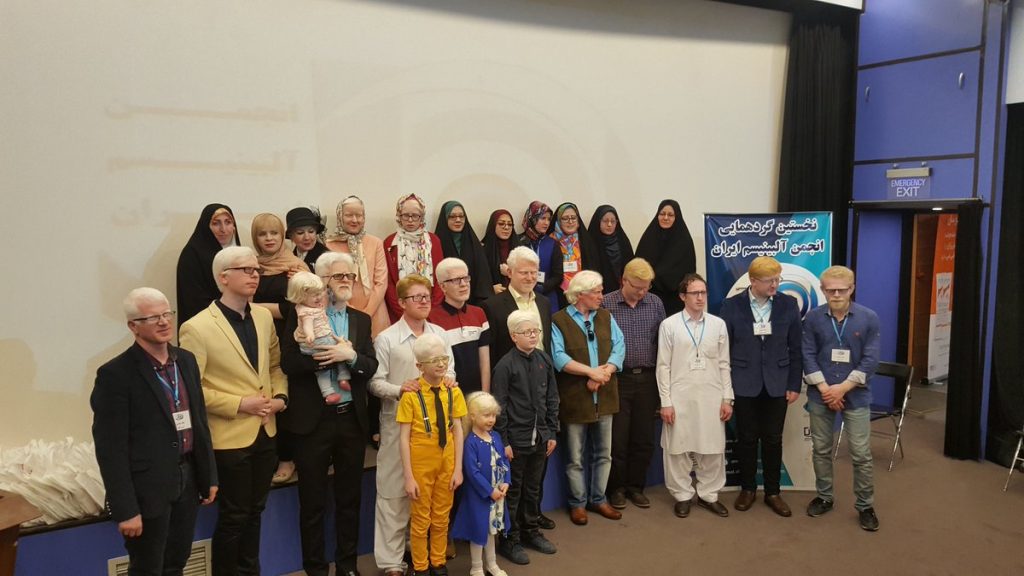
In April 2018, Iran’s first organization dedicated to promoting the rights of people with albinism urged the Iranian government to seriously consider this vulnerable community’s needs and begin devising a plan to address them.
A recent speech by a UN official calling on countries with hot climates to implement measures that would enable people with albinism to access skin cancer treatments has highlighted the lack of such a policy and accessible support for people living with albinism in Iran.
Albinism is a genetic disorder that causes the skin, hair, and/or eyes to have little or no color, making the individual’s skin extremely sensitive to sun exposure. Many with the condition also experience various vision and eye problems.
“Countries with high sun exposure should prioritize the threat of skin cancer and treat this as a matter of public health,” said Ikponwosa Ero, the UN’s newly appointed independent expert on the enjoyment of human rights by persons with albinism, in a speech to the UN General Assembly on October 22, 2018.
“In some countries, a majority of persons with albinism reportedly die from skin cancer; most of them between the ages of 30 and 40,” she said.
The UN expert added, “In many other parts of the world, people with albinism are among the poorest and most marginalized. They often face multiple and intersecting discrimination on the coexisting grounds of disability and color among other grounds. They are often excluded from public policies in key sectors such as health and education. While specific measures are now developed for persons with albinism in the Africa region, other regions should also follow suit, with specific action plans to bring in people with albinism from the margins.”
Primary Issues: Skin Ailments, Vision Disorders and Cultural Obstacles
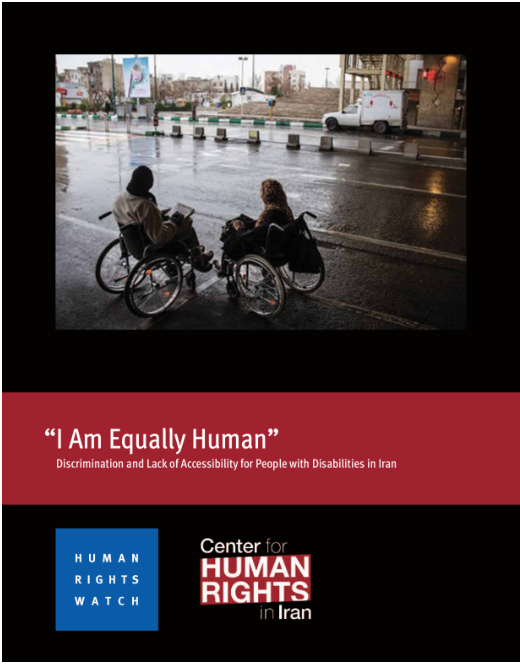
The 72-page report, “‘I Am Equally Human’: Discrimination and Lack of Accessibility for People with Disabilities in Iran,” documents the everyday barriers people with disabilities meet when going to government offices, healthcare centers, and when using public transportation.
The Iranian government has not compiled data about the rate of albinism among the population. Despite dealing with a range of disabilities due to this genetic disorder, Iranian citizens with albinism are also ineligible for disability benefits because their condition is not legally categorized as a disability.
A small number of people with albinism have been able to register with Iran’s State Welfare Organization (SWO) because they have weak vision, according to rights advocates. Vision problems for people with albinism include deviation of the eyes balls and extreme light sensitivity, making it to difficult for them to see in bright spaces.
However, vision is one among several potential issues faced by people living with this condition.
“Weak vision is just one of our problems,” a person with albinism who asked not be named told the Center for Human Rights in Iran (CHRI). “Our skin is always in danger of severe sunburn and we have to apply strong sunblock creams and avoid sunshine.”
“Often, people with albinism suffer severe burns because they are unaware or don’t have anti-sun creams,” said the individual.
“People make fun of us and humiliate us and it causes a lot of problems in social interactions such as marriage and especially employment,” added the source.
Despite the severe disabilities people with albinism are forced to deal with in their daily lives, Iran’s SWO, the main agency tasked with providing services to people with disabilities, has refused to categorize people with albinism as eligible for receiving state financial aid and services.
In September 2017, Mohammad Reza Saravani, the head of the SWO’s office in Sistan and Baluchistan Province (where people with albinism are at high risk of skin cancer due to the hot and sunny climate), made numerous false claims about the condition and welfare of the community in Iran:
“We do support some of these individuals when they become blind or disabled. We have a data bank of people with disabilities but it does not include persons with albinism. They are counted among the blind and others who require rehabilitation. These individuals have no particular problems other than vision weakness and blindness. Kids who have recognized disabilities in this group are few.”
But an individual living with albinism in Iran who spoke to CHRI on the condition of anonymity said that contrary to Saravani’s claims, they have always struggled to access essential medicines and sun block creams:
“If our vision becomes weak enough to be considered a disability, then we might receive a monthly stipend or, occasionally, other help. But we don’t get any help in terms of getting our medicine or health products for skin treatment. I know many people with albinism who have no record with the SWO and don’t receive any help. Strong and effective sun blocking creams are very expensive and many families are not able to afford them. This seriously endangers the health of people with albinism especially in places like Sistan and Baluchistan, where the sun’s rays are very strong.”
The individual added that the SWO has also taken no steps to counter discrimination against people with albinism:
“No attention is given to the social aspect of our disability. A person with albinism who has vision weakness has very different issues than other people with the same disability. We experience a lot of humiliation because of our different appearance. Girls with albinism are particularly vulnerable. But SWO has no program to change these kinds of wrong attitudes in society.”
Lacking Legal Support
According to the SWO’s regulations, albinism is not considered a distinct disability. The condition is also not mentioned in Iran’s Law for the Protection of the Rights of Persons With Disabilities.
To address the lack of accessible legal support, a group of Iranians with albinism have created the Iranian Association for Albinism with an official permit from the Interior Ministry to provide services for people living with albinism and to raise awareness about their rights.
On April 13, 2018, the group’s founders held their first gathering in Tehran, during which they urged the Iranian government to seriously consider the needs of persons with albinism and begin devising a plan to address them.

